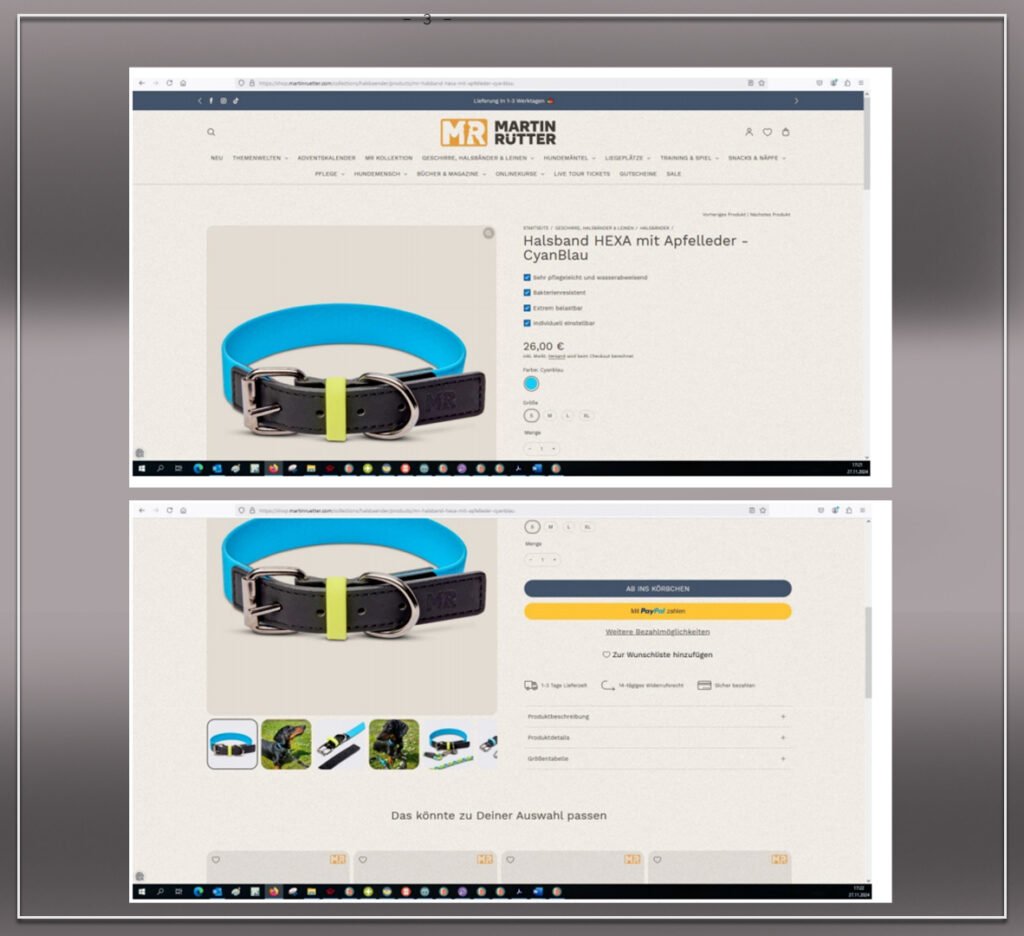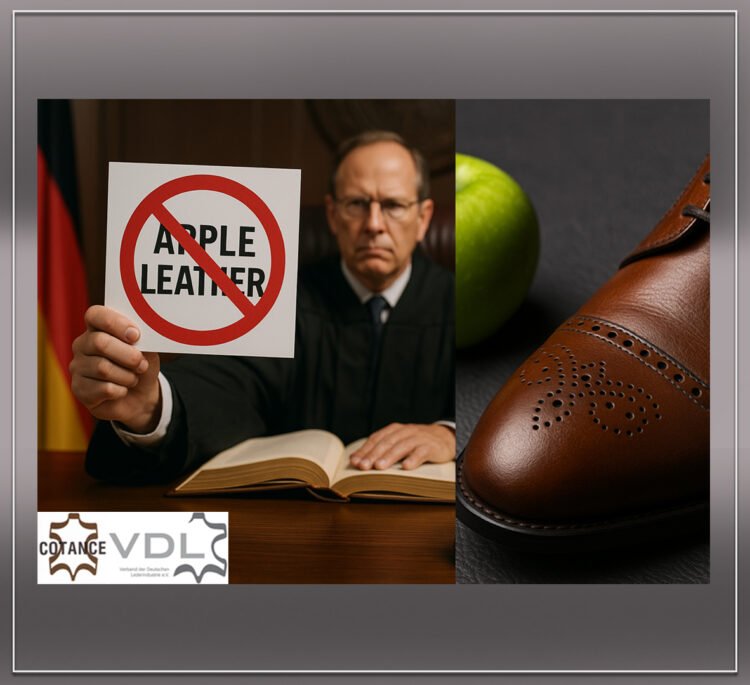The Higher Regional Court of Cologne bans the misleading marketing of synthetic products under the label “apple leather,” marking a critical precedent for consumer rights and the protection of genuine leather.
In a landmark decision protecting both consumer rights and the integrity of genuine leather, the Higher Regional Court of Cologne has ruled against Mina Merchandising GmbH, owned by TV personality Martin Rütter, prohibiting the marketing of synthetic products as “apple leather.”
The case was brought by the Verband der Deutschen Lederindustrie e.V. (VDL) – a member of COTANCE – after Mina Merchandising failed to respond to warnings about deceptive advertising of plastic-based dog collars labeled as “apple leather.” The court firmly ruled that the term “leather” can only be used for products made wholly or partially from animal hide.
Although a lower court initially dismissed the claim, the Higher Court overturned the decision, emphasizing that using the term “apple leather” without actual leather content was misleading and unlawful. The court stated that prefixes such as “apple,” “rhubarb,” or “cactus” do not justify the misuse of the protected “leather” designation when no leather is present.
“This is not only a win for the leather sector—it’s a win for consumers and for fair, transparent marketing. We support innovation, but we reject misleading terminology that devalues traditional, natural materials,” said Gustavo Gonzalez-Quijano, Secretary General of COTANCE.
Andreas Meyer, Managing Director of VDL, echoed:
“We are not against alternative materials – but they must not be called leather if they are not.”
The ruling also dismissed the earlier argument that the collar’s blue color would prevent consumer confusion. Instead, the court clarified that “leather must mean leather” and any labeling that implies otherwise violates consumer trust.
COTANCE praised VDL’s determination, noting that this precedent reinforces the call for EU-wide regulation to prevent greenwashing and protect the authenticity of leather products.
A victory for leather is a victory for consumers—and a clear message to companies: the time for exploiting the name and reputation of genuine leather is over.










